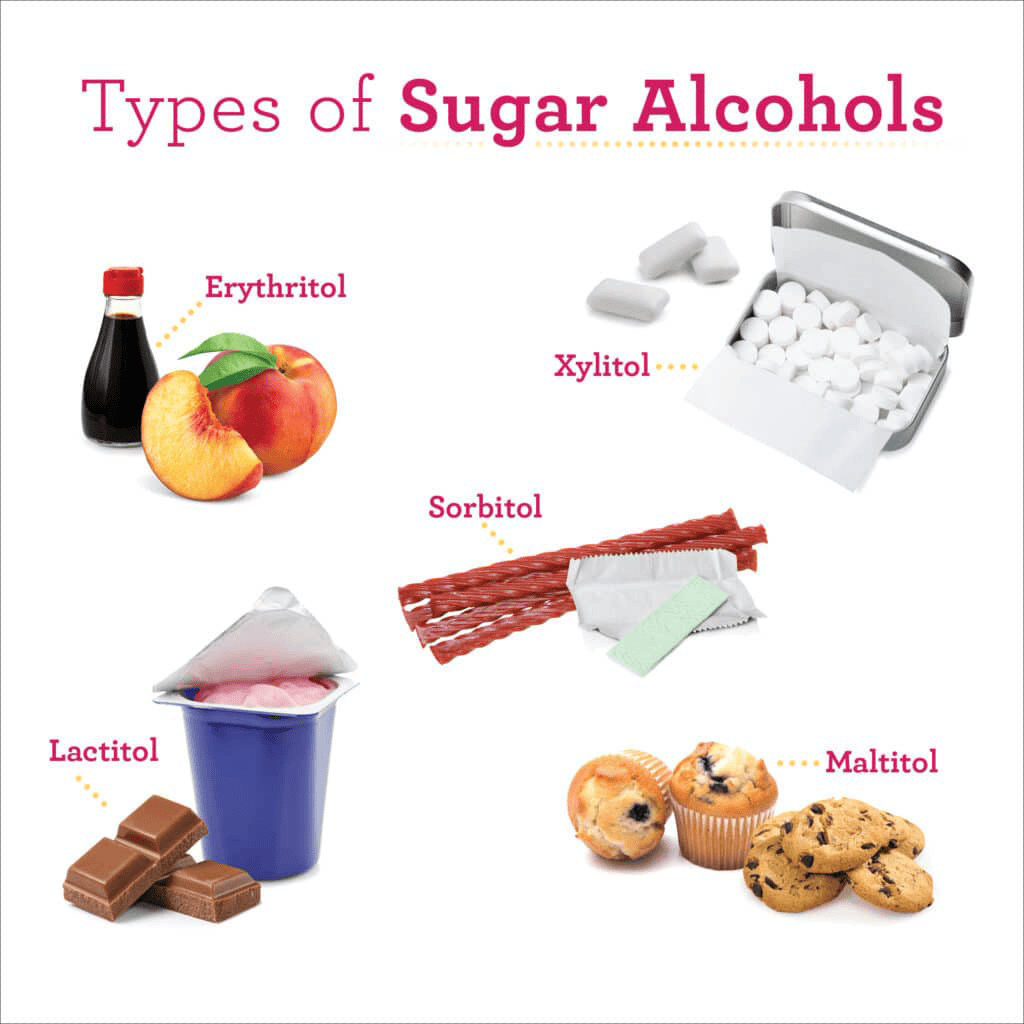Introduction to Sugar Alcohols
Sugar alcohols, also known as polyols, are a type of carbohydrate that the body partially absorbs and metabolizes. Unlike traditional sugar, they have a minimal impact on blood glucose levels, making them an excellent alternative for people managing diabetes or those on low-carb diets. They occur naturally in fruits and vegetables but can also be industrially produced to sweeten a wide array of products from sugar-free chewing gums to diabetic-friendly foods.
Types of Sugar Alcohols
Several sugar alcohols are commonly used in food production, each with its unique properties. Some of the most prevalent include:
- Xylitol: Renowned for its dental benefits, xylitol is often found in sugar-free gum and mints.
- Erythritol: With fewer calories than xylitol, erythritol has a minimal effect on blood sugar levels, making it a favorite amongst low-carb dieters.
- Sorbitol and Maltitol: These are often used in baked goods, candies, and sugar-free ice creams. While they offer fewer calories than sugar, they can have more pronounced effects on blood sugar and digestive issues in some individuals.

Impact on Blood Sugar
One of the most significant advantages of sugar alcohols is their low glycemic index (GI), which measures how quickly foods raise blood sugar levels. Unlike regular sugar, sugar alcohols cause a much slower rise in blood glucose, making them safer for diabetics. However, individual responses can vary, and monitoring blood sugar levels is advisable when trying new products.
Health Benefits
Beyond blood sugar management, sugar alcohols offer other health benefits:
- Dental Health: Unlike traditional sugar, sugar alcohols do not contribute to tooth decay and cavities. In fact, xylitol may actively protect against dental caries by inhibiting the growth of decay-causing bacteria.
- Weight Management: With fewer calories than sugar, sugar alcohols can aid in weight control, making them a smart choice for those looking to reduce their caloric intake without sacrificing sweetness.
Digestive Tolerance
While sugar alcohols are generally safe, they can cause digestive discomfort in some individuals, particularly when consumed in large amounts. Symptoms may include gas, bloating, and diarrhea. This is due to the body’s inability to fully absorb them, leading them to ferment in the large intestine. Starting with small amounts and gradually increasing intake can help minimize potential side effects.
Food Applications
Sugar alcohols are versatile and found in a wide range of food and beverage products, including:
- Sugar-free candies and chocolates
- Low-carb and keto-friendly baked goods
- Sugar-free chewing gums and mints
- Certain low-calorie or diabetic-friendly beverages
Making Informed Choices
When incorporating sugar alcohols into your diet, it’s essential to read labels carefully. While they can play a role in a healthy diet, moderation is key. Look for products that use sugar alcohols as part of a balanced formulation and be mindful of the overall nutritional profile, particularly if you have specific health goals or dietary restrictions.
Conclusion
Sugar alcohols offer a sweet solution for those looking to reduce sugar intake without compromising on taste. By understanding the types of sugar alcohols, their impact on blood sugar, and their benefits and drawbacks, consumers can make informed choices that align with their health and wellness goals. Whether managing diabetes, pursuing weight loss, or simply seeking healthier alternatives, sugar alcohols can be a valuable part of a balanced diet.
FAQ
References
1. U.S. Food & Drug Administration: Sugar Alcohols – https://www.fda.gov/food/food-additives-petitions/sugar-alcohols
2. Harvard School of Public Health: Low-calorie sweeteners – https://www.hsph.harvard.edu/nutritionsource/healthy-drinks/artificial-sweeteners/
3. Mayo Clinic: Understanding sugar alcohols – https://www.mayoclinic.org/healthy-lifestyle/nutrition-and-healthy-eating/in-depth/artificial-sweeteners/art-20046936
4. National Institutes of Health: Sugar Substitutes – https://ods.od.nih.gov/factsheets/SugarSubstitutes-Consumer/
5. European Food Safety Authority: Scientific Opinion on the dietary reference values for carbohydrates and dietary fibre – https://efsa.onlinelibrary.wiley.com/doi/full/10.2903/j.efsa.2010.1462
6. American Diabetes Association: Sugar Alcohols – https://www.diabetes.org/nutrition/understanding-carbs/sugar-alcohols 7. Medical News Today: What are sugar alcohols? Uses, benefits, and risks – https://www.medicalnewstoday.com/articles/323361#risks-and-side-effects
7. Food and Chemical Toxicology: Erythritol – An Update -https://www.sciencedirect.com/science/article/pii/S027869151300717X?via%3Dihub 8. Journal of Clinical and Diagnostic Research: Sugar alcohols–their role in the modern world of sweeteners: a review – https://www.ncbi.nlm.nih.gov/pmc/articles/PMC3591496/
8. Diabetes Care: Effects of sugar-free chewing gum sweetened with xylitol or sorbitol on the development of gingivitis and plaque – https://pubmed.ncbi.nlm.nih.gov/15383239/

